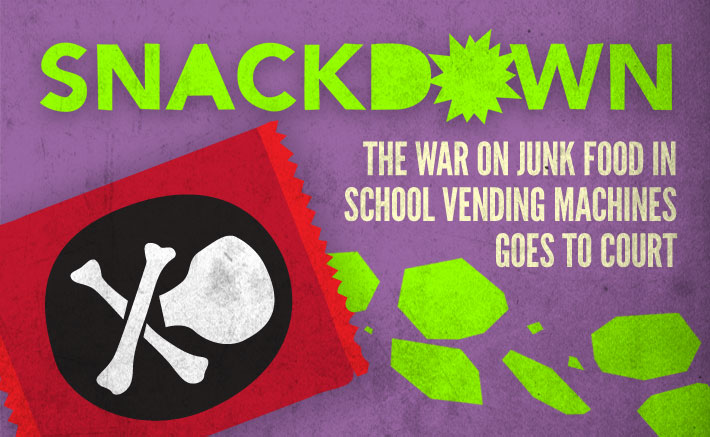

DECISIONS, DECISIONS: Two Commack high school students survey the options in a healthy vending machine between classes on a recent school day. The start-up company that provides the machine is being sued by a local vending machine giant after the Levittown School District recently followed the trend toward healthier snacks.
Nationwide, nearly one in three children are overweight or obese as a result of poor eating habits and lack of exercise. The rate nearly tripled between 1980 and 2001, increasing health risks later in life such as diabetes, heart disease and some cancers, according to the Centers for Disease Control.
Health care to treat obesity-related illnesses and conditions cost the nation an estimated $150 billion and New York State more than $7.6 billion annually, according to Jeffrey Hammond, spokesman for the state Department of Health.
Although a study published in this month’s edition of the journal Pediatrics indicates some early signs that the child obesity trend could be on the decline, experts say that ridding school vending machines of 600-calorie sticky buns is addressing only one piece of the pie.
“I tell parents to look at those snacks and to not have it in the house,” says Dr. Eve Meltzer-Krief of Huntington Village Pediatrics, suggesting that kids can fin junk food in plenty of places besides school vending machines. “If it’s not in the house, they can’t eat it.”
A few districts made waves in recent years when they banned home-baked goods from schools, which some saw as an overreaction to the obesity epidemic, effectively depriving children of a classroom birthday celebration tradition.
Still, about $2.3 billion worth of snack foods and beverages are sold annually in schools nationwide, The New York Times reports. What’s more, there is limited state oversight regarding “competitive foods,” or snacks and beverages available in school vending machines.
“Because New York State has not issued guidance on wellness policies and the appropriate nutrition standards to use when deciding which competitive foods and beverages to offer on their campuses, districts have had to independently develop and implement their own policies,” a 2009 audit of 20 school district nutrition policies by state Comptroller Tom DiNapoli’s office found.
The report suggested uniform guidance to help ensure that school district wellness policies meet minimum standards, since more than half of the schools audited failed to meet or even set their own standards.
“School vending machines filled with junk food, candy and soda is not the best way to fight childhood obesity,” DiNapoli said at the time.
Vanilla cream cookie sandwiches, pink lemonade and BBQ-flavored corn chips were some of the offending items auditors found in Port Jefferson school vending machines. A school official says the district is now meeting standards.
One of the four that was found in compliance with its own nutritional rules was the Westbury Union Free School District. Assistant Superintendent Mary Lagnado testified before Congress in October 2009—a month after the audit was released—touting the school breakfast program that was launched earlier that year.
Lagnado testified the goal was “to affect a paradigm shift in the foods served and selected in the school cafeterias and vending machines through awareness and a district-wide commitment to helping students and the community move away from carbohydrates, which turn into sugars in the digestive process, to foods that enhance activity and concentration.”
Before the new federal school food rules were passed, New York City schools addressed some issues DiNapoli’s office raised. Aside from healthier cafeteria food, city schools are also rolling out more nutritious vending machine options.
“Everyone’s trying to find that balance,” says Tom Murn, owner of The Answer Group, a Farmingdale-based vending machine company that has 30 fresh fruit vending machines in city schools—with more to come.
Sen. Ken LaValle (R-Port Jefferson) is among those trying to find level ground on the issue. In a political climate when lawmakers and schools are clamoring for mandate relief, LaValle is making an exception by sponsoring a bill to crack down on the calory content in the vending machines’ junk food offerings.
“Normally I don’t think we should have a ‘nanny state’ where we’re regulating everything,” he says. “But when it comes to our children’s health, we’re talking about childhood diabetes or having diabetes when we’re older, I think we need to promote good health habits, starting with our kids.”
The bill, reintroduced each session for years, is stalled in committee.




